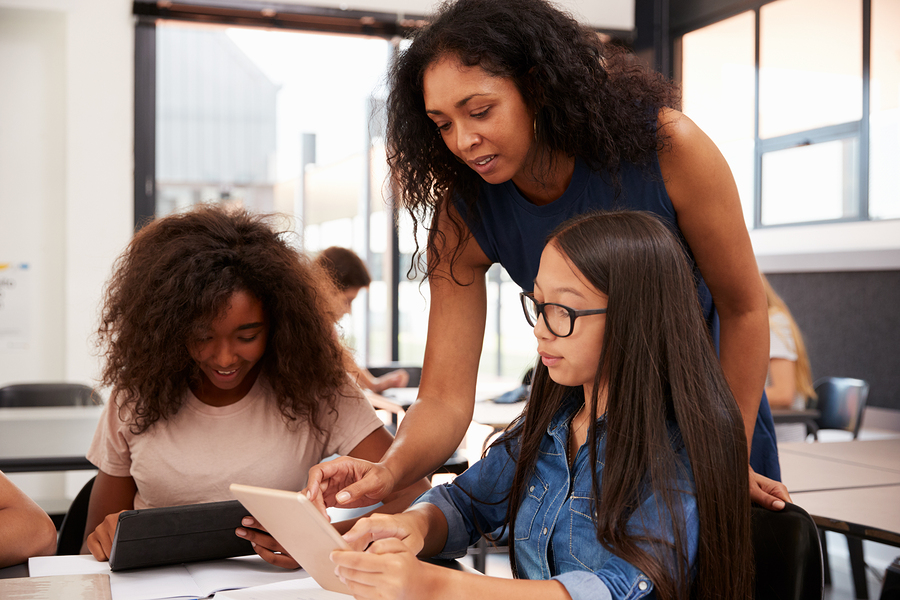Schools and teachers must provide students with the tools needed to reach their potential and to acquire essential skills such as critical thinking, collaboration, creativity, and communication so that as graduates they can compete and contribute successfully in a global economy.
Nevertheless, differences between teacher quality, the leadership of administrators, the economic situation of families and the community can create inequality in the students’ learning experience. That is why it is important to integrate technology into all classrooms so that all students can have access to it.
In a new report, Project Tomorrow examines the use of technology in schools and how it influences in providing educational equity. According to the report, 83% of parents consider the use of technology in school important for the future of their children. Also, 66% believe that using tech tools and digital resources regularly in the classroom helps children develop the skills needed for the labor market.
The use of technology in schools has increased in the last five years. However, the use of technology by teachers is not always effective or equitable, which concerns 18% of parents. For their part, 46% of the directors think that motivating teachers to use digital tools within their courses will help them feel better prepared since their lack of confidence is the main obstacle to more effective use of technology in the classroom.
Meanwhile, 43% of administrators believe that implementing digital content (digital games, textbooks, online videos, animations and simulations) benefits equity in the classroom. To ensure access to the same opportunities, administrators who participated in the study stated that they provide students with a laptop, tablet or Chromebook during school hours. 60% of these directors adopted the 1:1 program to get mobile devices.
Students who have access to these technological tools have a higher possibility to personalize their learning process, organize their school work and improve their education. Only 39% of students who do not have this type of device believe they are learning tools effectively for the future.
Teachers who teach using digital content report higher results than those who do not use technology and 51% of them who use such tools demonstrate skill development. Lastly, the use of technology helps develop essential skills for the university and the workforce. That’s why programs that provide students with laptops, tablets or Chromebooks, such as the 1:1 Program, are so important because they help to level learning for all, making technology accessible and equitable.
This article from Observatory of the Institute for the Future of Education may be shared under the terms of the license CC BY-NC-SA 4.0 
)
)


)